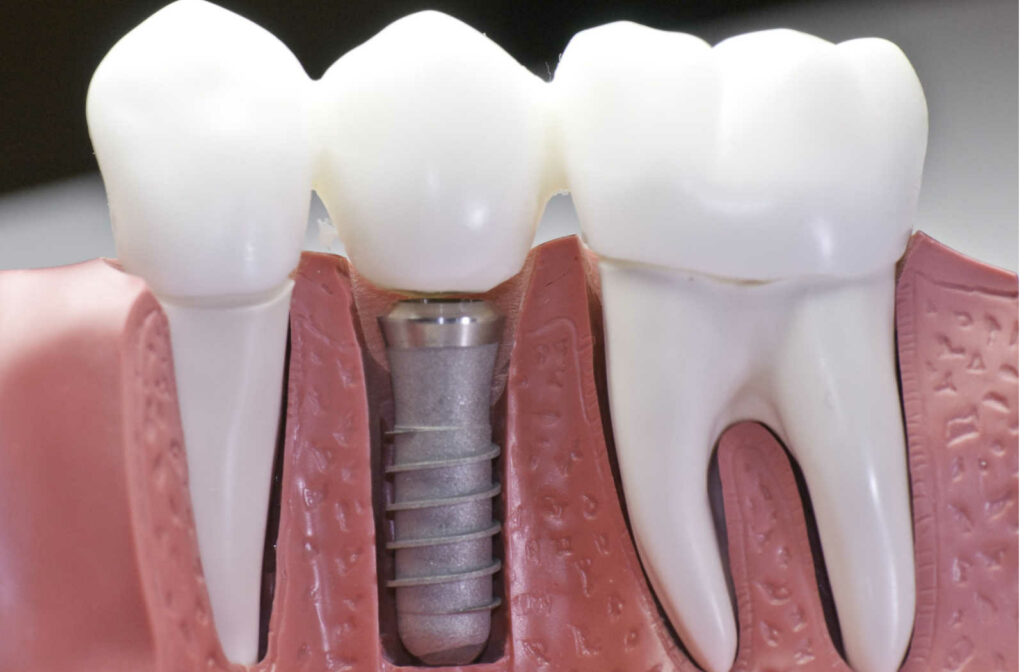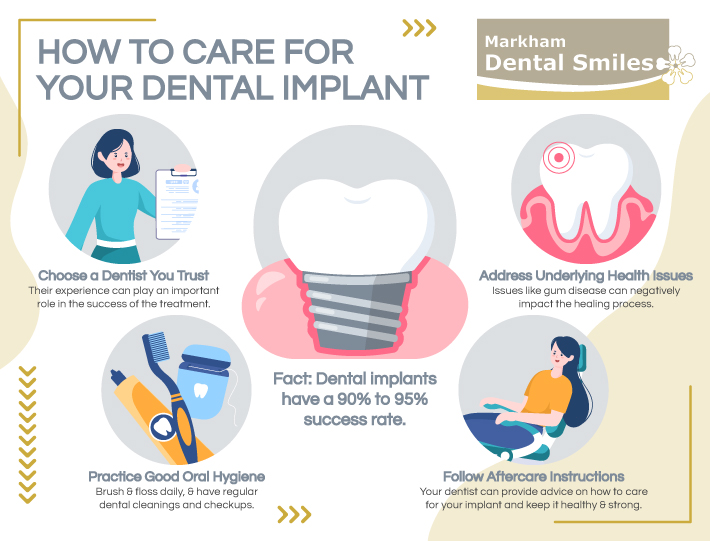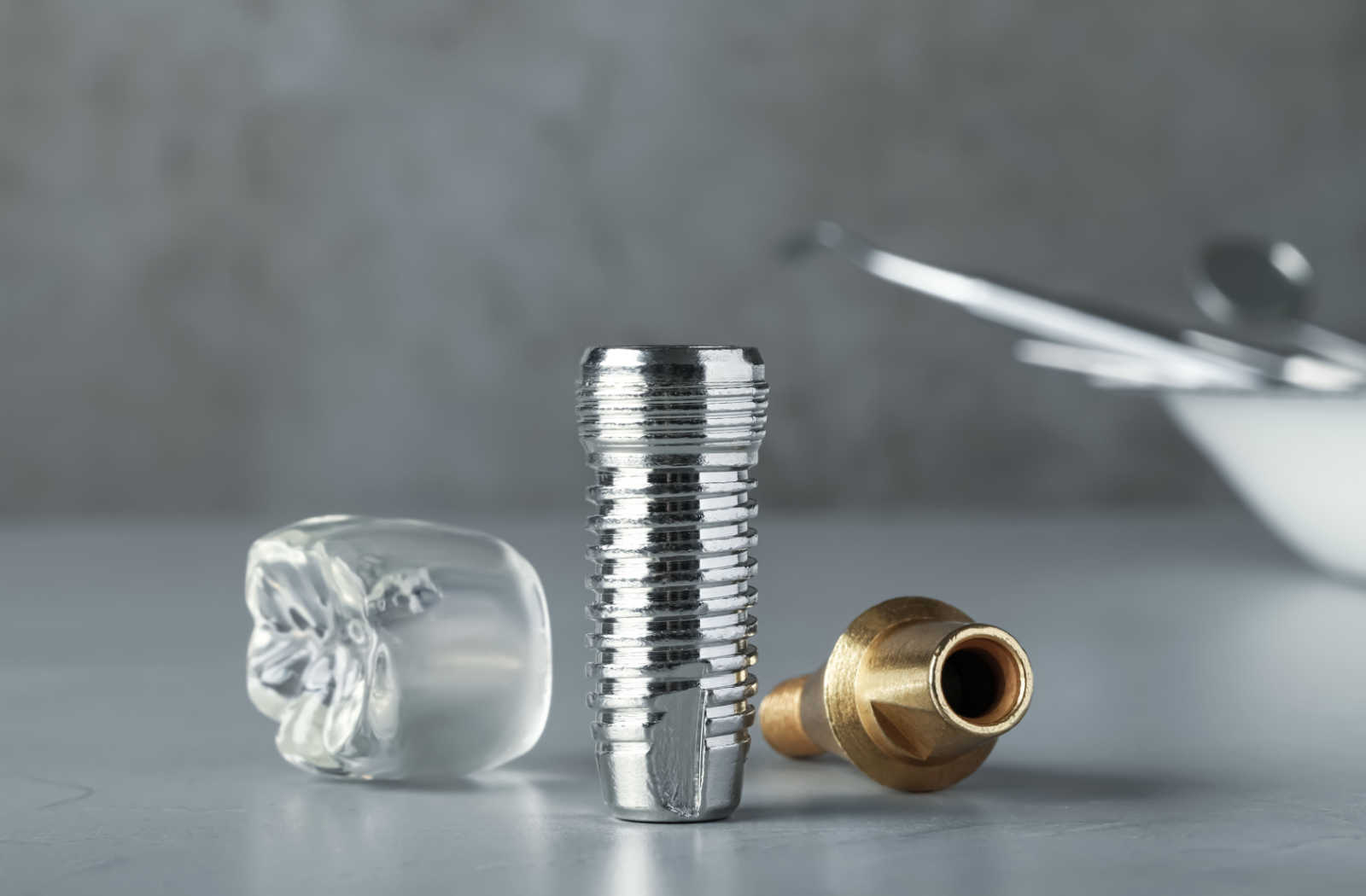If you’re considering tooth implants, it’s natural to have questions and concerns. One of the most common worries among dental patients is that an implant might fall out—but can this really happen?
Dental implants boast an impressive success rate of 90% to 95%, making them a fantastic option for restoring your smile. However, there’s still a small chance of failure, with 5% to 10% of dental implants possibly experiencing complications or falling out.
Several factors can impact the success of dental implants, including your overall health, oral hygiene practices, your dentist’s experience, and the procedure itself. By tackling these factors head-on and following your dentist’s aftercare guidelines, you can significantly minimize the chance of a dental implant falling out and enjoy a bright, healthy smile.
What to Know About Tooth Implants
Tooth implants, or dental implants, have become a widely preferred solution for replacing missing teeth, offering a durable and natural-looking alternative to traditional dentures or bridges.
These implants consist of 3 main components:
- A titanium post placed in the jawbone
- An abutment
- A custom-made crown (artificial tooth) designed to blend seamlessly with your natural teeth
Unlike dentures or bridges, dental implants can help preserve the jawbone by stimulating bone growth, preventing bone loss and maintaining facial structure. Dental implants can last for many years with proper care and maintenance, making them a cost-effective long-term solution.
Types of Dental Implants
There are a few different types of dental implants, but you’re most likely to encounter endosteal or subperiosteal implants.
Endosteal (endosseous) implants, the most common type, are placed directly into the jawbone and are typically made of titanium. They have a screw-like design, providing a secure anchor for the custom-made crown.
Subperiosteal implants are positioned under the gum tissue but above the jawbone, making them a good option for patients with lower bone density or those who aren’t able to have bone grafting procedures.
Apart from these main types, there are also mini dental implants, which have a smaller diameter and require less invasive surgery, and zygomatic implants that anchor into the cheekbone instead of the jawbone.
A consultation with your dentist can help determine the most appropriate dental implant type based on your oral health needs and individual circumstances.

While tooth implants are a reliable solution for replacing missing teeth, understanding the potential risks that can come with implant failure can help you spot the signs if your implant isn’t healing properly.
Although rare, sometimes dental implants can fall out or experience complications, such as:
- Infection
- Nerve damage
- Sinus problems
- Rejection by the body
The risk of these complications can be influenced by factors such as poor oral hygiene, smoking, autoimmune conditions, diabetes, or insufficient bone density to support the implant. Having a skilled dental professional you trust can play a crucial role in minimizing these risks.
By understanding the potential risks involved and addressing them proactively, you can maximize the success of your dental implant treatment and maintain a healthy, long-lasting smile.
Symptoms of a Loose Tooth Implant
It’s important to be aware of the symptoms that may indicate a loose tooth implant, as early detection and intervention can help prevent further complications.
Some common signs of a loose implant include:
- Pain or discomfort around the implant area
- Swelling or inflammation of the surrounding gum tissue
- Visible movement or shifting of the implant or the attached crown
- Difficulty biting or chewing
- A clicking sound when speaking or eating
- A change in the way your teeth fit together
If you experience any of these symptoms, contact your dental professional for a thorough evaluation so they can provide treatment to support the long-term success of your implant.

How to Prevent Your Tooth Implant from Falling Out
Proactive measures and ongoing care can help prevent your implant from falling out. Here are a few ways to help support the success of your dental implant:
- Choose an experienced and reputable dental professional to perform the procedure, as their experience can play a role in the success of the treatment.
- Prioritize maintaining good oral hygiene by regularly brushing, flossing, and using an antibacterial mouthwash, as well as attending routine dental checkups and cleanings.
- Address underlying health issues, such as diabetes or gum disease, before undergoing the implant procedure, and consider quitting smoking, as it can negatively impact the healing process and overall implant success.
- Follow your dentist’s aftercare instructions and promptly report signs of complications, such as pain, swelling, or loosening of the implant.
Choose a Dental Team You Can Trust
While dental implants are typically long-lasting and have a high success rate, choosing a dental team you can trust is key. At Markham Dental Smiles, we pride ourselves on our commitment to quality dental care in a friendly and stress-free environment. At our practice, your comfort and satisfaction come first.
Schedule a consultation with our team to learn more about dental implants and find out if they’re right for you.







